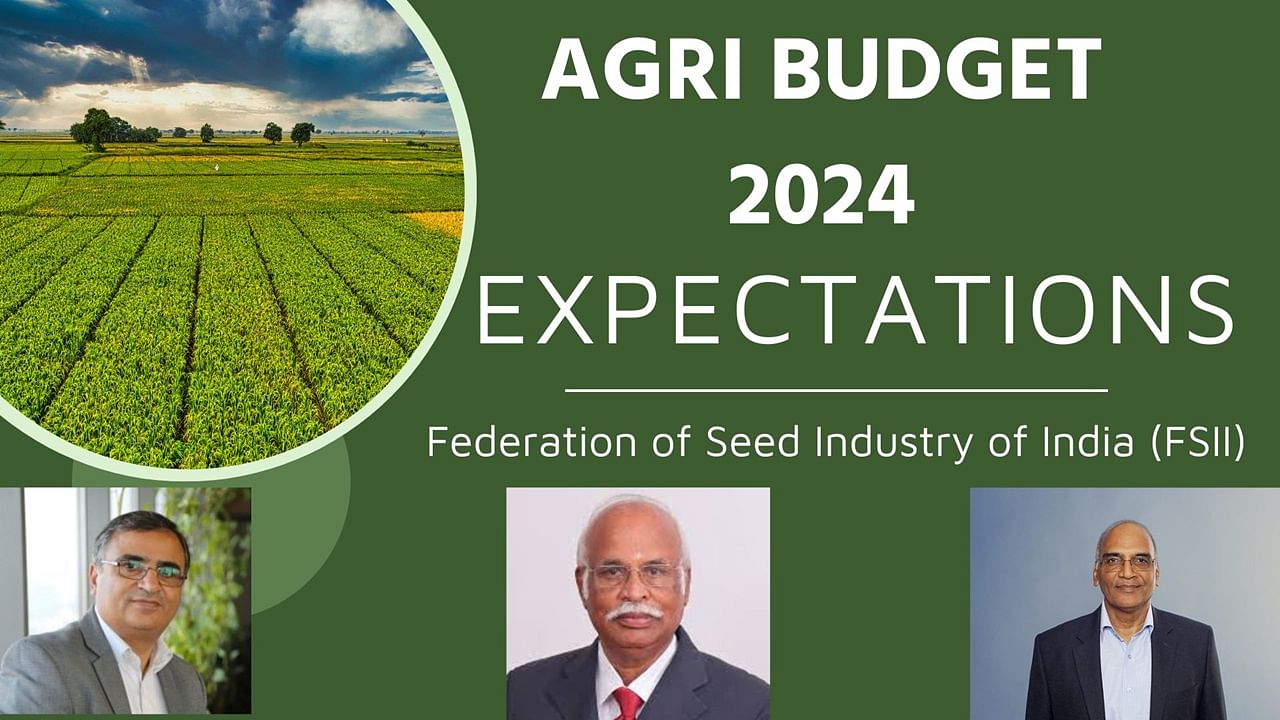
As India marches towards agricultural excellence, the Federation of Seed Industry of India (FSII) emerges as a pivotal force steering the sector towards sustainable growth. With the impending Budget 2024, industry leaders anticipate a transformative roadmap that aligns with their vision of India becoming the "Seed Valley of the World." In this brief, we delve into the key expectations and perspectives put forth by FSII, outlining crucial areas that demand attention for the advancement of the nation's seed industry.
Pre-Budget Industry Expectations & Perspective
Dr M Ramasami, Former Chairman, FSII & Chairman, Rasi Seeds Pvt Ltd
India's seed industry, currently valued at US$6.3 billion, anticipates substantial growth, aiming to reach US$12.7 billion by 2028 and US$20 billion by 2040 with a projected CAGR of 10%. As India aspires to become the "Seed Valley of the World," capturing 10% of the global seed trade, challenges arise due to the lack of differentiation between technology-focused and basic-level companies. The proposed system seeks to address this by tracking seed research, incentivizing high-priority areas, and accrediting research-based seed companies through a National Register.
This accreditation system integrates various aspects of the industry and proposes a 5-year accreditation period based on independent assessments, renewable and subject to audits. Data generated by accredited research-based companies may be considered for regulatory approvals. The industry's expectations and recommendations for National Accreditation have been submitted in a pre-budget memorandum to the Ministry of Finance, anticipating consideration in the upcoming budget.
Ajai Rana, Chairman, Federation of Seed Industry of India (FSII) & CEO, Savannah Seeds Pvt Ltd
Anticipating Budget 2024, the industry looks forward to addressing critical challenges in agriculture. The government's focus on research in crop varieties and sustainable practices is acknowledged. Allocating funds through income tax deductions, as proven effective in the past, is crucial. Notably, the 200% income tax deduction for R&D in biotechnology introduced in 2010-2011 was reduced to 150% in 2016 and further to 100% in 2020. The urgency to boost seed R&D, essential for farmers, is emphasized.
A key expectation from Budget 2024 is restoring the 200% income tax deduction for seed industry R&D under Section 35(2AB). Eligibility, based on a national register, requires a rigorous process, including inspection and a 5-year renewal period. Transparency is ensured through annual reports evaluated by a government committee, covering labor and testing expenses.
Similarly, the industry faces a challenge concerning customs duty changes in scientific equipment and research essentials. Previously exempted under Section 56 / 1996, these items played a crucial role in seed research and development (R&D). The industry expects Budget 2024 to restore customs duty on essential items to the earlier 5% rate for nationally accredited companies. This measure aims to support seed research by ensuring access to critical equipment. FSII has communicated these expectations through a pre-budget memorandum, hopeful that this year's budget will address the industry's needs for technological advancement and innovation in the seed sector.
Ram Kaundinya, Advisor, FSII
With optimism for Budget 2024, cutting-edge technology is vital for global competitiveness, demanding international-standard laboratories with advanced equipment.
In addition to infrastructure, incorporating ISTA/NABL-accredited seed health testing facilities is essential. The industry aims to position India as a global seed production and export hub, proposing the creation of a "Seed Valley."
To support this vision, a Production Linked Incentive (PLI) Scheme tailored to the unique needs of the Seed Industry is advocated, with a feasibility study requested from the Ministry of Agriculture.
















